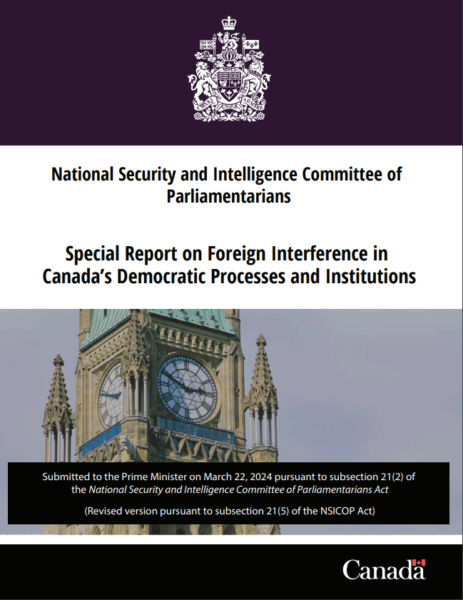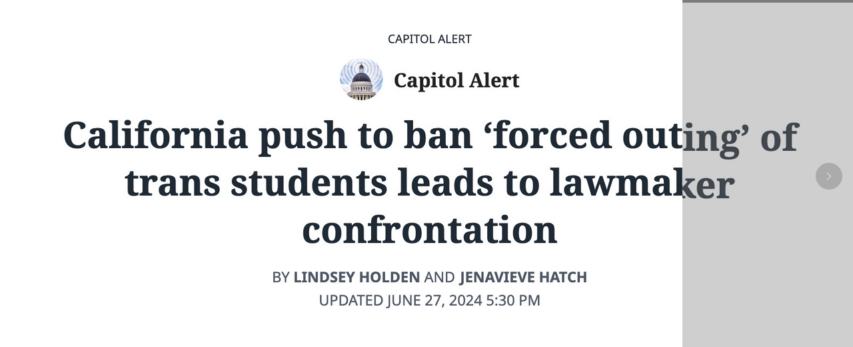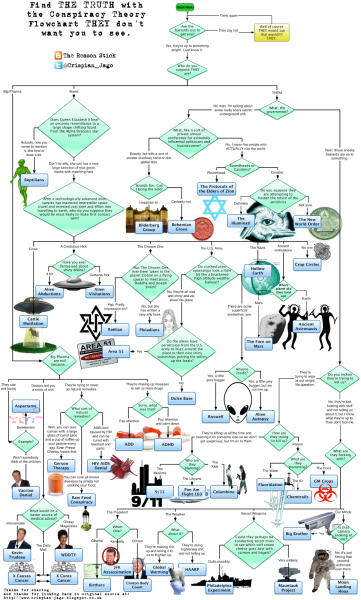Forgotten Weapons
Published Aug 26, 2024In the 1930s, Poland decided to develop an anti-tank rifle, and the young designer Józef Maroszek came up with the winning system by scaling up a bolt-action service rifle he had already drawn up. The project was kept very secret, out of concern that Germany or Russia would up-armor their tanks if the Polish rifle’s existence and capabilities became known. This secrecy has led to a lot of misconceptions about the rifle today …
Interestingly, the ammunition for the wz.35 used a plain lead core. Polish engineers found that at its incredible 4200 fps (1280 m/s) muzzle velocity, the lead core had excellent armor penetrating capacity. When the German Army later captured and reused the rifles, they didn’t trust this, and reloaded captured Polish ammunition with German tungsten-cored projectiles made for the PzB-39.
Rather than explain the full story of the wz.35 in detail here, I will refer you to http://www.forgottenweapons.com/wz-35/, where I have posted a full monograph on the rifle written by Leszek Erenfeicht.
(more…)
December 29, 2024
wz.35: Poland’s Remarkably Misunderstood Antitank Rifle
June 30, 2024
California’s politics are so weird that Justin Trudeau is frantically taking notes
Chris Bray pays attention to California politics … and we should all pray for his long term mental health: that place is insane!
What’s happening in California isn’t politics in any conventional sense. No debate is underway, and no policy choices are being hashed out. We’re in the land beyond. In Our Democracy™, declarations are made, and then they are to be received in a spirit of quiet submission. Your failure to submit is disallowed, and the reason it’s been disallowed is that it’s been disallowed. Were it allowed, it would not be disallowed, but it is, in fact, disallowed, so therefore it is not allowed, you see? All “political” discussion is a circle, eating its own tail. I’ve been trying to figure out how to explain this, but the Sacramento Bee just did it for me. (Paywall-evading version here.)
The Bee is explaining — or “explaining” — what happened on the floor of the state Assembly yesterday, when a Republican was not permitted to argue against a bill, and a Democrat stood up to threaten him for trying. I encourage you to read the whole self-refuting thing. What happened, it turns out, is that the Republican was preventing debate by engaging in debate, which meant that he had to be silenced and threatened so debate could continue, which required that no one express opposing views, which is an act of anti-debate aggression. Debate is agreement, and not agreeing is preventing debate.
The “forced outing” debate was a discussion about AB 1955, which proposes to forbid schools to inform parents of discussions between children and school officials about sexual orientation and sexual behavior. It’s important that parents not be told about sexually themed discussions happening between children and the adults in their schools, because not telling mommy and daddy about sexual discussions is being safe and warm. But watch the casual turn of logic in the last paragraph of this screenshot:
- Evan Low said the bill is important because it’s good that parents not be told, and the bill makes sure parents aren’t told.
- Sabrina Cervantes said she didn’t have this bill when she was young, which would have forbidden telling, so someone told.
- Democrats explained that the bill is not meant to keep secrets from parents.
See, AB 1955 isn’t about keeping secrets from parents — it’s about not allowing schools to tell parents. Not being allowed to tell parents is different than keeping secrets from parents. The story doesn’t go on to explain the distinction between keeping secrets and not telling, but under Jacobin cultural rules, the distinction is that shut up. The distinction is presumptive, and so doesn’t require explanation.
Now, here’s the way the Bee characterizes Assemblyman Bill Essayli’s arguments during the debate that he derailed by not agreeing:
Essayli has exhibited a consistent pattern of publicly disparaging advocacy groups and fellow lawmakers in an attempt to garner attention for conservative causes. On Thursday, he interrupted colleagues’ testimony and expressed frustration over Wood cutting his microphone and shutting down his comments when they veered away from AB 1955 and toward the issue of forced outing, in general.
His comments about the forced outing bill weren’t about the bill — they were about forced outing. What a bastard! Mister Speaker, he’s not debating the highway funding bill, he’s debating highway funding. Again, why does this distinction make sense? Because shut up. It makes sense declaratively: X is true because they said X.
And Essayli has a “consistent pattern” of saying disparaging things, which the Bee knows through mindreading is a maneuver to “garner attention” rather than an attempt to express his views. He disagreed, which is a very cynical and manipulative thing to do during a debate. He has a pattern of it!
And also Essayli is so rude that he interrupted colleagues when they spoke, and then had the nerve to object when his microphone was turned off. It’s rude to stop someone from speaking, and it’s rude to object to being stopped from speaking. You should never interrupt people, and you should always allow other people to interrupt you. They’re playing partisan Calvinball under the dome, and all moves lose.
June 17, 2024
For want of a security clearance, the (potential) traitors escaped scot-free
In the free-to-cheapskates section of this week’s Dispatch from The Line, we get a summary of the state of brain-freeze in Parliament over the NSICOP (National Security and Intelligence Committee of Parliamentarians) report, that in a functioning state would have triggered much more action than it has in the dysfunctional Dominion:

The cover of the NSICOP special report on foreign interference (PDF – https://nsicop-cpsnr.ca/reports/rp-2024-06-03/special-report-foreign-interference.pdf )
The lead story this week, clearly, was the continuing fallout from the NSICOP report last week. Because of this report, even though there is much that we do not know, there are absolutely some things that are clearly established. Let’s run through some of the key points that are uncontested and draw some very modest and safe conclusions from them.
Here are facts.
- There are multiple parliamentarians, meaning members of the House of Commons and the Senate, who have been deemed by eight of their colleagues to be engaged in activities with hostile foreign powers on either a witting or semi-witting basis.
- The prime minister and the PMO have been aware of who these individuals are for at least a month, if not longer. That is when NSICOP filed its unredacted report to them for review, as required.
The above facts are unchallenged. Now let’s draw a few conclusions.
The phrasing of the NSICOP report, as well as both Elizabeth May’s and Jagmeet Singh’s press conferences this week, led us to believe some of these individuals are still sitting in both the House of Commons and the Senate. We acknowledge that Elizabeth May and Jagmeet Singh differ considerably on the severity of what these individuals are alleged to have done, but both seem to agree that the relevant parties, in at least some cases, remain in Parliament.
The prime minister, as the person responsible for the administrative and legal apparatus of government, could call the Clerk of the Privy Council, the Director of CSIS, the minister of public safety and others as necessary into his office today, and inform them that he would be making the names public, and that it would be the responsibility of those individuals to figure out how that could be accomplished while protecting intelligence sources and methods. At this time, there is no indication that he has done so, or has any interest in doing so.
So we got the grotesque theatre that was the House of Commons this week. The government has spent the last week and change challenging various opposition leaders to obtain security clearances so that they could view information that the prime minister has had for at least a month, and perhaps longer, even though both the Security of Information Act and the National Security and Intelligence Committee of Parliamentarians Act (depending on the auspices under which their security clearances were issued) prevents them from disclosing what they read.
And, therefore, doing anything about it. Because to remove a caucus member would be to reveal it, and if a leader has no caucus members that are implicated, there is no urgency to their reading the report.
Protecting the national security of Canada, and the democratic institution of parliament itself, is the prime minister’s job before it is anyone else’s. And the prime minister has had this information for at least a month.
It’s worth repeating that because we want you to envision something. Imagine there are three U.S. Senators accused of aiding and abetting a foreign power, and Joe Biden knew about it for a month.
When do you think impeachment proceedings would start?
Boris Johnson was unceremoniously dumped by his party for lying about throwing a party during COVID lockdowns (and we have no problem with that). Our prime minister has known that there are people currently sitting in parliament that have turned themselves into intelligence assets for hostile foreign powers for a month, and …
… the government would like you to know that it thinks Pierre Poilievre should get a security clearance so that he can read the documents.
We think Poilievre should, too. Because here’s the thing. The Security of Information Act says right there in Section 24 “No prosecution shall be commenced for an offence against this Act without the consent of the Attorney General”.
That reads to us like so: Pierre Poilievre can read those documents, release the names, and then dare Justin Trudeau to prosecute him. Indeed, anyone with the names could.
Your Line editors have raised this before on the podcast, but it bears repeating. Canada’s international reputation has taken a lot of hits lately. So imagine if you would, gentle reader, a situation where Justin Trudeau’s Attorney General signs off on having his political opponent arrested for revealing that hostile foreign powers have coerced sitting MPs into becoming intelligence assets … especially if one or more of those MPs is revealed to be a Liberal.
That’s a front page international news story. We’d look like a banana republic. Our international reputation would take decades to recover.
Spoiler: we already do look like a banana republic and our international reputation is lower than it has ever been. Trudeau isn’t a dummy: he figures that our reputation literally can’t get much worse no matter what he does, so he’s choosing to protect … someone … and what’s Poilievre going to do? He proved during the lockdowns that he’s not willing to get arrested on a matter of principle (unlike Maxime Bernier), so he’s likely to just posture endlessly until something new pops up in the silly season news rotation.
May 12, 2024
The fascinating story of HMS Challenger (K07)
Sir Humphrey pens a long blog post about a late Cold War Royal Navy ship — officially just a “diving support vessel”, but apparently much more capable — most naval fans may never have heard about:
The story of HMS Challenger remains one of the most unusual of all post war Royal Navy vessels. Born in the late Cold War, she was in the eyes of the public a “white elephant” commissioned and never operationally used and sold after just a few years’ service at the end of the Cold War. She was to the few public that had heard of her, “the Warship that never was”. But revealing files in the National Archives tell a story of a ship that was designed to fill a range of highly secretive intelligence support functions and clandestine espionage activity that, had she been successful, would have made her perhaps one of the most vital intelligence collection assets in the UK. This article is about the untold story of HMS Challenger and why she deserves far more recognition than enjoyed to date.
The background of the Challenger story can be traced to the mid 1970s when the Royal Navy used the, by then positively venerable, warship HMS Reclaim to conduct diving support work. The Reclaim, commissioned in 1949 was the last warship in the RN to be designed and fitted with sails, that were occasionally used. Employed in diving support and salvage ops for 30 years, she was a vital asset for the recovery of crashed aircraft, support to diving and other assorted duties. But by 1975 she was also very old and out of date and requiring replacement (she paid off as the oldest operational vessel in the Royal Navy in 1979).
To replace her the Royal Navy developed Naval Staff Requirement 7003 and 7741, which were approved in 1976. These requirements set out the need for a replacement and the capabilities that were required. By this stage of the Cold War the world was a very different place both operationally and technologically from when HMS Reclaim entered service. There were significantly more undersea cables laid across the Atlantic, while the SOSUS network (a deep-water network of sonar systems intended to detect Russian submarines) had been delivered and expanded into UK waters in the early 1970s under project BACK SCRATCH. Additionally the Royal Navy had introduced a few years previously the Resolution class SSBN, which by 1976 had four submarines providing a Continuous At Sea Deterrent (CASD) with their Polaris missiles, as well as wider nuclear submarine operations. At the same time new technology was emerging including better diving capability, the rise of miniature submarines capable of both operating at immense depths and also the rise of rescue submarines for stranded nuclear submarines. Additionally technology had improved increasing the ability to recover items from the seabed.
When brought together this provided the RN with the opportunity to think afresh about how to replace Reclaim. The result was a set of requirements that were defined as follows:
The objective of NSR 7003 was to provide the Royal Navy with a Vessel and equipment capable of carrying out seabed operations. The requirement … is to find, inspect, work on and recover items on the seabed at all depths down to 300m with some capability to greater depths.
The specific missions for which the requirement was looking to cater for broke down into three main areas:
- Inspection, neutralisation or recovery of military equipment, including weapons;
- Operations in support of national offshore interests including research;
- Assistance with submarine escape and rescue and with underwater salvage
This represented a significant leap forward compared to Reclaim, which was limited to diving at up to 90m in very limited conditions, and would have provided the Royal Navy with an entirely new level of capabilities.
The decision was taken to proceed with the requirement and Challenger was ordered in 1979 and commissioned in 1983. What then follows is a sorry story of a ship being brought into service and having practically everything that could go wrong, going wrong. This article will not go into any depth on the story of what failed, as to do so would be a lengthy story. Suffice to say that a combination of faulty equipment, manufacturing challenges, fires and other damages and the reality that technical aspirations were not matched by practical delivery in reality meant that Challenger never really became operational.
Used for a series of trials until the late 1980s to prove her systems and see if they would work, she struggled to achieve what was expected of her. She had some success recovering toxic chemicals from the seabed from a sunken merchant ship in the 1980s and then conducting other demonstrations, such as deep diving and supporting submarine rescue trials. But she never lived up to the expectations placed on her, and at a time when the costs required to get her to the level of capability were far too high, and the defence budget was under pressure at a point when the Warsaw Pact threat was rapidly collapsing, the decision was taken to pay her off as a failed experiment even before the wider Options for Change plan was announced. This much is widely known to the public, but what is nowhere near as well known is the missions that Challenger was intended to carry out. Had she been successful, it would have made a very real difference to RN capabilities.
Why did the Royal Navy seem so determined to make a success of Challenger for so many years, to the extent of throwing ever more money at her, given these problems? In short because the missions she was designed to do made it worthwhile. Files in the archives clearly show that beyond the public line of “research” she was designed to carry out exceptionally sensitive missions. Although the original Naval Staff Requirement focused on three areas, by the time she entered service, this had expanded to at least 9 (possibly more). These were:
- Strategic Deterrent Force Security
- Seabed surveillance device support
- Nuclear weapon recovery
- Recovery of security and military sensitive material
- Crashed military aircraft recovery
- Submarine escape and rescue operations
- Salvage operations
- MOD research and data collection for other than intelligence agencies
- Miscellaneous operations in support of other government agencies
It can be seen that far from being just a diving support platform, Challenger was in fact an absolutely central part in providing assurance to the protection of CASD and ensuring the security of the nuclear deterrent and SOSUS. How would she have done this?
The files show that in the 1980s the UK had a different attitude to the US about protection of these routes due to geographic differences.
January 26, 2024
Canada’s sooper-sekrit warship program
David Pugliese on the cone of silence the federal government seems to have pulled down over the Canadian Surface Combatant shipbuilding program as it steadily escalates in total cost to the taxpayer:

An artist’s rendition of BAE’s Type 26 Global Combat Ship, which was selected as the Canadian Surface Combatant design in 2019, the most recent “largest single expenditure in Canadian government history” (as all major weapon systems purchases tend to be).
(BAE Systems, via Flickr)
National Defence has brought in a new and unprecedented shroud of secrecy around a controversial warship project now estimated to cost taxpayers more than $80 billion.
After withholding documents for almost three years, the Department of National Defence has released nearly 1,700 pages of records that were supposed to outline specific costs and work done so far on the Canadian Surface Combatant program.
But all the details of what taxpayers have so far spent and what type of work has been done by Irving Shipbuilding for that money have been censored from the records.
“I pretty much got nearly 1,700 blank pages,” Ken Rubin said of the access to information request he filed to National Defence in April 2021 about the warship program. “I have never seen this level of secrecy or lack of accountability over a project that is costing so much.”
Rubin, an investigative researcher who has used the access law to obtain federal documents for decades, said there was not a single cost figure contained in any of the 1,700 pages. One page noted that Irving was required to perform 19 specific tasks, but all details were censored. Others pages listed numerous amendments made to the CSC program, but all details were blacked out. Information about the annual profit Irving has made so far on the CSC project is censored.
Irving declined to provide comment, referring this newspaper to National Defence.
Defence Minister Bill Blair’s office sent this newspaper a statement noting the “minister believes strongly in openness and transparency, and expects the Department of National Defence to respect the rights of Canadian citizens, permanent residents and persons or corporations present in Canada, to access records of government institutions that are subject to the Access to Information Act“.
National Defence noted in a statement that, since some of the records involved Irving Shipbuilding, government officials consulted with the firm to determine if the records contained proprietary information of the firm. Irving objected to the release of information, the department added.
But Rubin pointed out that National Defence was not required to follow Irving’s orders on what records could be released to the public. The amount of tax dollars spent on the surface combatant and how that money was being spent shouldn’t be secret, he added.
In addition, National Defence originally claimed in a statement to this newspaper that the long delay in providing the documents was because Rubin had asked for 20 years of records. But, when challenged on that claim, the department acknowledged it wasn’t true. It did not, however, provide an explanation why it had provided false information to this newspaper.
The Canadian Surface Combatant project will involve the construction of 15 warships for the Royal Canadian Navy at Irving on the east coast.
August 19, 2023
One Day in August – Dieppe Anniversary Battlefield Event (Operation Jubilee)
WW2TV
Published 19 Aug 2021One Day in August — Dieppe Anniversary Battlefield Event (Operation Jubilee) With David O’Keefe, Part 3 — Anniversary Battlefield Event.
David O’Keefe joins us for a third and final show about Operation Jubilee to explain how the plan unravelled and how the nearly 1,000 British, Canadian and American commandos died. We will use aerial footage, HD footage taken in Dieppe last week and maps, photos, and graphics.
In Part 1 David O’Keefe talked about the real reason for the raid on Dieppe in August 1942. In Part 2 David talked about the plan for Operation Jubilee. The intentions of the raid and how it was supposed to unfold.
(more…)
August 18, 2023
One Day in August – Dieppe – Part 2 – The Plan
WW2TV
Published 17 Jan 2021Part 2 – The Plan With David O’Keefe
David O’Keefe joins us again. In Part 1 he talked about the real reason for the raid on Dieppe in August 1942. In Part 2 we talk about the plan for Operation Jubilee and David will share his presentation about the intentions of the raid and how it was supposed to unfold.
A final show sometime in the summer will come live from Dieppe to explain how the plan unravelled and how the nearly 1,000 British, Canadian and American commandos died.
(more…)
August 17, 2023
Dieppe – One Day in August – Ian Fleming, Enigma and the Deadly Raid – Part 1
WW2TV
Published 29 Nov 2020In less than six hours in August 1942, nearly 1,000 British, Canadian and American commandos died in the French port of Dieppe in an operation that for decades seemed to have no real purpose. Was it a dry-run for D-Day, or perhaps a gesture by the Allies to placate Stalin’s impatience for a second front in the west?
Canadian historian David O’Keefe uses hitherto classified intelligence archives to prove that this catastrophic and apparently futile raid was in fact a mission, set up by Ian Fleming of British Naval Intelligence as part of a “pinch” policy designed to capture material relating to the four-rotor Enigma machine that would permit codebreakers like Alan Turing at Bletchley Park to turn the tide of the Second World War.
In this first show we will look at how the raid has been written about in previous books and the research David undertook and as importantly why he did it. In a future show, we will look at filming in Dieppe itself and explain the sequence of events.
(more…)
June 3, 2023
“Rather than having a culture of transparency, we have a culture of secrecy”
In The Line, Philippe Lagassé writes about Canada’s remarkably non-transparent approach to classified information and the very limited ability of our elected representatives to see anything the government chooses to deem “a secret”:
Institutions are tough to change, Canadian institutions especially. But change is possible. Gradual change can happen when we reinterpret existing rules or add new ones on top of old ones that are deeply entrenched. In other cases, a crisis happens that leads to rapid and significant change. These crises either destroy old ways of doing things, or they open a window of opportunity to shake things up. Revelations of Chinese interference in Canadian elections, and David Johnston’s first report on the matter, have opened one of these windows when it comes to Parliament and classified information.
Two sets of Canadian parliamentarians have access to classified information: Privy Councillors (though usually only those currently serving as ministers of the Crown), and those who sit on the National Security and Intelligence Committee of Parliamentarians (NSICOP). In both cases, they have access to classified information in an executive capacity, not their parliamentary capacity. Put differently, they have access to this information by virtue of an executive office they hold in addition to their parliamentary one. Parliament doesn’t have a body that has access to classified information, nor do parliamentarians have access to that information unless they hold an executive office.
Keeping classified information squarely within the executive, or in limited cases within the judiciary, reflects deep-seated Canadian pathologies. As our pathetic Access to Information system highlights, the Canadian government over-classifies things or deems too many of them subject to cabinet confidence. Rather than having a culture of transparency, we have a culture of secrecy. This secrecy culture exists for a number of reasons. Public servants don’t want their ministers to be embarrassed. Information is power within the bureaucracy and giving it out easily diminishes its value. Risk aversion is rewarded and admitting failure is frowned upon. We can’t disclose anything that might rub an ally the wrong way. The list goes on.
Above all, though, Canadian government encourages the strange notion that our secrets are super-super-secret. What do I mean by that? When you look at our allies, Canadian is an outlier in terms of what we disclose and to whom we disclose it. Canadian officials have convinced themselves that they are applying a well-established set of norms around classified and sensitive information, when in fact we’re an outlier. This is particularly notable with it comes to sharing national security information with Parliament.
In the United Kingdom, there’s a statutory committee of Parliament that has access to classified information, called the Intelligence and Security Committee. Since the United Kingdom’s Public Accounts Committee is also expected to oversee all the government’s spending, the chair of that committee has had access to classified information as well to review secret agency budgets. Australia has a similar committee, the Parliamentary Joint Committee on Security and Intelligence. This is a very active and important body. It allows Australia to regularly update its national security legislation to meet new threats and to ensure that the powers conferred on the executive are not abused. New Zealand has a parliamentary Intelligence and Security Committee, too. The Kiwi committee is a bit of an odd duck, since it’s chaired by the prime minister and has the leader of the official opposition as a member. Given that New Zealand is probably one of the most zealous countries when it comes to government transparency, though, it isn’t too surprising. They release stuff that would lead the Privy Council Office to have a collective head explosion if we did the same.
April 26, 2023
Lowered standards, lowered trust, and the US military
In The Free Press, Rob Henderson considers the changes in how the US military recruits for the various branches now that patriotism is a word only used ironically in scare quotes:
The military can’t meet its recruitment goals. Too many young people are too fat, do drugs, or have a criminal record. This has been a problem for years. It’s now approaching a crisis.
To address the recruitment shortfall, the military has reduced previous standards for entry, allowing men to be 6 percent fatter (and women, 8 percent). It is also trying hard to lure recruits by appealing to their self-interest, with a video of individual soldiers speaking to the camera, encouraging candidates to find “the power to discover, to redefine yourself, to improve yourself, to challenge yourself” and “to realize there’s more in you than you ever knew that you could do”. Recruits can also win up to $50,000 bonus money for enlisting.
But this strategy carries a big risk: young adults tend to be less loyal to organizations with lowered standards that target their personal motives. Study after study has shown as much.
As the University of Toronto psychologist Paul Bloom has written, “If entering the group required a thumbs-up and a five-dollar entry fee, anyone could do it; it wouldn’t filter the dedicated from the slackers. But choosing to go through something humiliating or painful or disfiguring is an excellent costly signal, because only the truly devoted would want to do it.”
In other words, by lowering the barrier to entry, the military has opened itself up to more recruits like Jack Teixeira.
No one knows exactly why Teixeira, 21, the Massachusetts Air National Guard airman, allegedly leaked classified information about the CIA, exposing our intelligence on Russia, South Korea, Israel, and Ukraine. He is now cooling his heels in prison, charged with violating the Espionage Act for spilling state secrets on the gaming platform Discord.
The Tucker Carlson right and the Glenn Greenwald left have come to a similar conclusion: that Teixeira is a kind of folk hero. Greenwald recently stated that, much like Edward Snowden, Teixeira aimed to “undermine the agenda of these [intelligence] agencies and prove to the American people what the truth is”. And it’s hard to imagine any Republican ten years ago making the argument that Marjorie Taylor Greene did — that the “Biden regime” considers Teixeira an enemy of the state because he is “white, male, [C]hristian, and antiwar”. Regardless of their specific reasons, this bipartisan agreement that Teixeira should be applauded is emblematic of a broader lack of confidence in the American government and our military.
In recent years, support for the military has plummeted more than in any other American institution — with 45 percent of Americans voicing trust in the armed forces in 2021 versus 70 percent in 2018. This decline is almost entirely due to younger Americans: among those 18 to 44, confidence in all the branches of the military is in the low- to mid-40 percent range; for those 45 and up, it’s in the 80 percent range, according to a 2022 YouGov survey.
This decline in support for the military coincides with declining patriotism among young Americans: 40 percent of Gen Zers (those born from 1997 to 2012) believe the Founding Fathers are more accurately characterized as villains, not heroes, according to psychologist Jean Twenge’s forthcoming book, Generations.
January 5, 2023
Trudeau’s government has paid 30 times as much to consultants McKinsey and Company as the Conservatives did
Paul Wells on the amazing profit margins McKinsey and Company must be making thanks to their booming business with the Canadian federal government under Justin Trudeau:
From Radio-Canada, and not yet translated into English at this hour, comes news that the Trudeau Liberals have paid 30 times as much to the global consulting firm McKinsey and Company as the Harper Conservatives did, even though the Liberals have so far spent less time in office than the Conservatives did.
That’s $2.2 million in nine years under Harper, against $66 million in seven years under Trudeau.
And this chart, which I’ve taken from the Rad-Can report, shows the recourse to McKinsey is accelerating: the company’s take from the feds last year was almost as much as its combined take from all previous years.
Rad-Can reporters Romain Schué and Thomas Gerbet write: “What was the firm’s precise role? It’s impossible to know for sure. [McKinsey] refused to answer our questions … And despite our requests, Ottawa didn’t want to share the reports the firm produced.”
This is only the latest evidence of a massive trend in government in Canada’s federal government, in many provinces, and abroad: the contracting-out of complex problems to private firms that charge a premium; are never around when problems arise later; often produce work of questionable quality; and are too often exempt from even the minimal transparency and accountability that’s expected of work done in-house by the regular public service.
We’re seeing that latter point play out in a Commons committee’s attempts to find out how the ArriveCan app came to cost so much. The app was developed by outside contractors (not McKinsey — today’s Rad-Can story is about McKinsey but the use of contractors benefits many firms), and MPs seeking details have so far received only shrug emojis from the Trudeau government.
This increasing resort to secretive external consultancies impoverishes public discussion about ideas for the future. It is brutally demoralizing to the professional public service, which means it pays nasty dividends by making public-service worse ever less attractive to talented people. It allows timid elected officials to buy a backbone, in the form of a commissioned study supporting their preferred option, and the only cost is the burden on public finances, which elected officials plainly soon learn not to worry about.
November 27, 2022
The Biggest Lie of WWII? The Myth of the Norden Bombsight
Flight Dojo
Published 16 Jun 2022I think most of us, at some point, have had someone say to us “You know, we went to the moon with less computing power than your iPhone” or something to that effect. What you may not know, though, is that less than a century ago, a 2000-piece mechanical computer that lacked a single transistor or chip was the most closely guarded military secret of the Allied war effort. Or, at least, the second most.
Before being overshadowed by the Manhattan Project, the U.S. Navy spent billions helping Carl Norden develop a mechanical computer with one job and one job only: to determine the point at which a level-flying bomber would need to drop its bombs to achieve “pinpoint accuracy” on an intended target.
When it was completed, Mr. Norden famously claimed that the sight was so accurate that it was capable of putting a bomb inside a pickle barrel. And if it could, then war would be revolutionized, or so the powers-at-be thought. The idea was simple: fly your bombers above the enemy’s air defenses, above the reach of their flak batteries, faster than their fighters could fly, and drop your bombs, with pinpoint accuracy, on crucial industrial sites, robbing the enemy of their ability to manufacture the equipment they need to wage a war in the first place.
The only problem was that everything about the Norden Bombsight turned out to be a myth. Not just the obviously mythical bits, like the fact that the crosshairs in the site itself were actually webs from a Black Widow, or that, instead, the reticle was made from the strands of hair of a young Midwestern girl, but everything, the accuracy, the secrecy, and even the fact that it was the only bombsight used in the war.
So how can this be? Until two weeks ago, I believed that the Norden Bombsight was an ingenious piece of equipment that more than any other singular device, changed the tides of WWII in favor of the allies. So why do we still believe in the Norden Bombsight?
Because, as it turns out, myths are useful, not just to the Army Air Corps, the Carl Norden Company, and Hollywood, but to us, the public. As it turns out, they can help us swallow hard truths about the war we’d prefer to avoid.
(more…)
January 9, 2022
QotD: Secrets in plain sight
One such trend – which Thiel approaches in a lot of different equivalent ways – is the loss of belief in secrets. People no longer believe that there are important things that they don’t know, but which they could discover if they tried a little harder.
Past scientific discoveries came from a belief in secrets. Isaac Newton wondered why apples fell, thought “Maybe if I work really hard on this problem, I can discover something nobody has ever learned before”, and then set out to do it. Modern people aren’t just less likely to think this way. They’re actively discouraged from it by a culture which mocks the story of Newton as “the myth of the lone genius”, and tells young people that even thinking about this risks promoting a regressive political agenda. Nowadays people get told that if they think they’ve figured out something about gravity, they’re probably a crackpot. Instead, they should wait for very large government-funded programs full of well-credentialled people to make incremental advances.
Good startups require a belief in secrets, where “secret” is equivalent to “violation of the efficient market hypothesis”. You believe you’ve discovered something that nobody else has: for example, that if you set up an online bookstore in such-and-such a way today, in thirty years you’ll be richer than God. This is an outrageously arrogant claim: that you have spotted a hundred-billion-dollar bill lying on the sidewalk that everyone else has missed. But only people who believe something like it can noncoincidentally found great companies. You must believe there are lucrative secrets hidden in plain sight.
Scott Alexander, “Book Review: Zero to One”, Slate Star Codex, 2019-01-31.
June 25, 2021
The Birth of the Manhattan Project – WW2 Special
World War Two
Published 24 Jun 2021When nuclear fission was discovered, scientists theorized it could be used in an atomic bomb. Thus, the American Army sets up one of the biggest research projects in history: The Manhattan Project.
(more…)
May 28, 2021
The essential — and largely non-replenishable — trust in government
Last week, Tom posted a then-recent discussion he overheard at The Last Ditch:
Two svelte American ladies of a certain age were having coffee today at my West London health club. They were in the next “pod” to me outdoors as I had a post-swim coffee before heading home. Perhaps it’s those wide-open prairies but Americans, bless them, always speak a little more loudly than us so I didn’t really have a choice but to listen to their conversation.
The topic was their mothers. Both moms back in the States are apparently unsure of the wisdom of being vaccinated. One cost of parenthood no-one tells you about beforehand is that one day you will be judged and found wanting by humans you could not love more; your children for whom you would cheerfully die. I confess their mothers immediately had my sympathy, regardless of the correctness of their views.
There was a good deal of sneering about conspiracy theories circulating on the internet. I found it surprising that both errant moms believed 5G was involved, but having listened quietly for another few minutes discovered that neither had ever said so. Their daughters were simply assuming that if they doubted government advice on vaccines, they believed all the other stuff too. One of the mothers is apparently a 9/11 “truther” and her daughter’s observation that no government is capable of keeping such a dark secret struck me as fair.
[…]
There are available facts and facts that will only become available in the future. People must make their choices based on their own risk assessment today. That useless truism is not the point of this post. The truly significant thing I overheard was this. Having sneered at her mother’s belief that “we can’t trust government”, one of the ladies said;
I thought to myself – Mom, I don’t want to believe what you believe because if it’s true I can’t have any of the things I believe in.
There, I thought, was a moment of insight; a moment (almost) of self-awareness. If government can’t be trusted, then the societal change she wants isn’t possible. Therefore, whatever the evidence, government must be trusted. That pretty much sums up the statist mindset.
I don’t know whether these mothers or daughters are right about this issue. I do know that one of the daughters (and her companion seemed to agree) is allowing her desires to displace her reason. In consequence, sadly, her mind will only ever be changed by a catastrophe I would never wish upon her.
I suspect many such earnest, well-meaning souls as Goneril and Regan (as I christened them) felt they needed to believe the state could be trusted at key points in the deadly history of the 20th Century. If the brave new world of Communism was to happen, for example, government had to be trusted with enormous power to make immense change.
Many Gonerils and Regans must have ruefully reflected on that in the Gulag.










